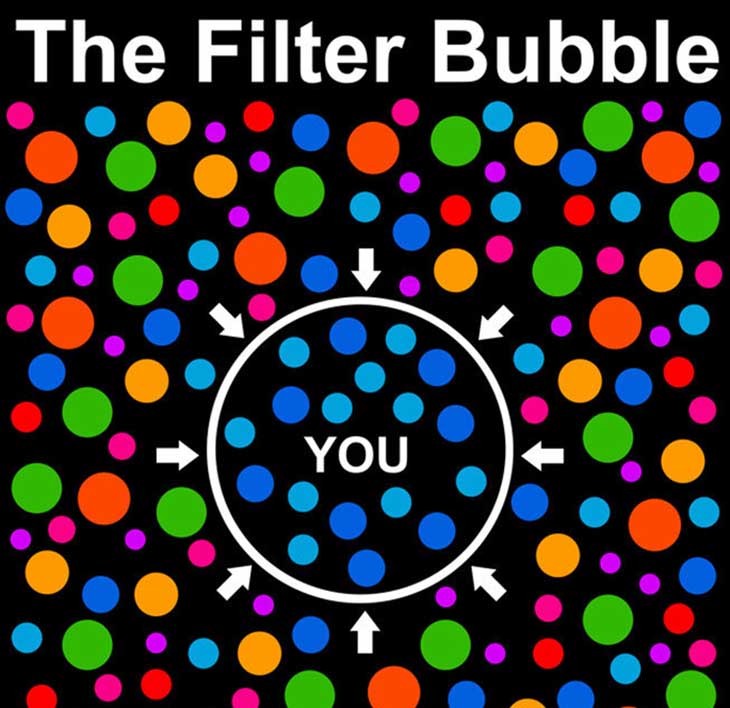Do You Want The Filter-Bubble Law?
Do you care what data websites gather about you? Would you prefer to opt-out of online data-collection efforts? If yes, you’ll be pumped about a new bill making its way through Capitol Hill.
Background: Digital Data Collection and You
As we all know, tech and social media companies track our every move. In a notable investigative report, journalist Geoffrey Fowler counted 5,400 trackers to his phone in a single week, which, according to him, “would have spewed out 1.5 gigabytes of data over the span of a month.”
Brands capture browsing and search history, geolocation data, and even likes. That info is then sold to advertisers who use it to determine your age, gender, interests, political leanings, income, and even personality.
The Filter-Bubble Bill
The volume of data collection caught the attention of federal legislators. John Thune, a senator from South Dakota, decided to address data collection creep, which he sees as a privacy threat, and authored bill number S.2763, aka, the Filter-Bubble Bill.
Under the proposal, websites and apps with more than one million users and grossing more than $50 million annually, would be required to alert users of search and geolocation trackers. It would also include an opt-out function for viewing a “personal data-influencer version of the website.”
A bipartisan effort, Thune, a Republican, convinced Democratic colleagues Richard Blumenthal and Mark Warner to sign on. Several right-wing senators.
When asked about his online tracking law proposal, Thune explained:
“For free markets to work as effectively and as efficiently as possible, consumers need as much information as possible, including a better understanding of how internet platforms use artificial intelligence and opaque algorithms to make inferences from the reams of personal data at their fingertips that can be used to affect behavior and influence outcomes.
“That’s why I believe consumers should have the option to either view a platform’s opaque algorithm-generated content or its filter bubble-free content. And, at the very least, they deserve to know how large-scale internet platforms are delivering information to their users.”
Pros and Cons of the Filter-Bubble Bill
Supporters of Thune’s online tracker bill think it will give consumers the information they need to craft informed, personal opsec infrastructures for themselves. They liken it to nutritional facts on food.
Opponents of the bill are mainly concerned with implementation costs and fear the stifling regulatory effects. Marketers also argue that people prefer tailored ads, which is better for both brands and consumers, and ultimately the economy.
Will the Filter-Bubble Bill Pass?
Will the Filter-Bubble Bill pass? To be honest, probably not. Skopos gives it a measly 4% chance. Regardless, note that legislators are now considering data marketing’s impact, and this won’t be the last effort of this kind.

